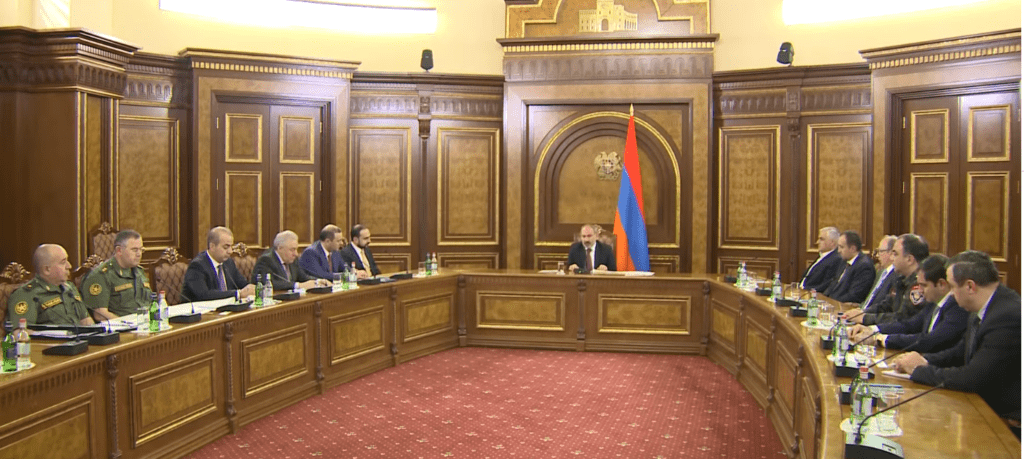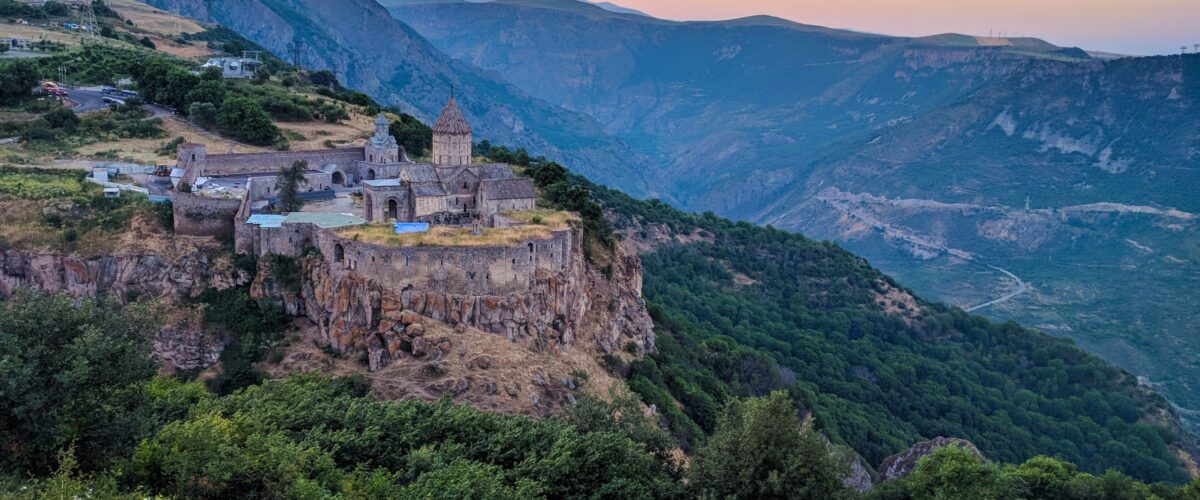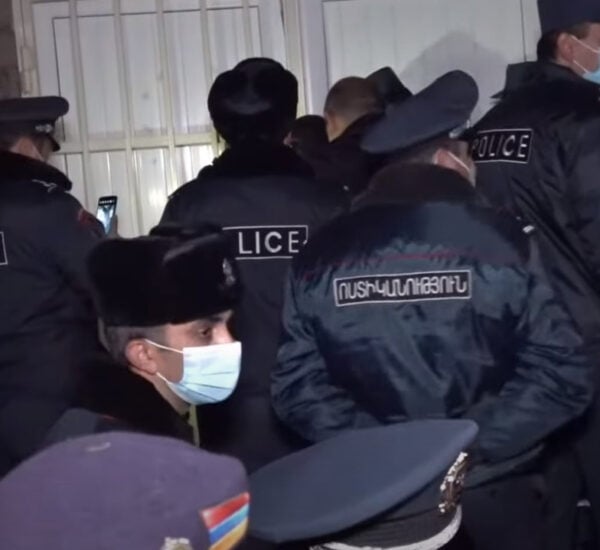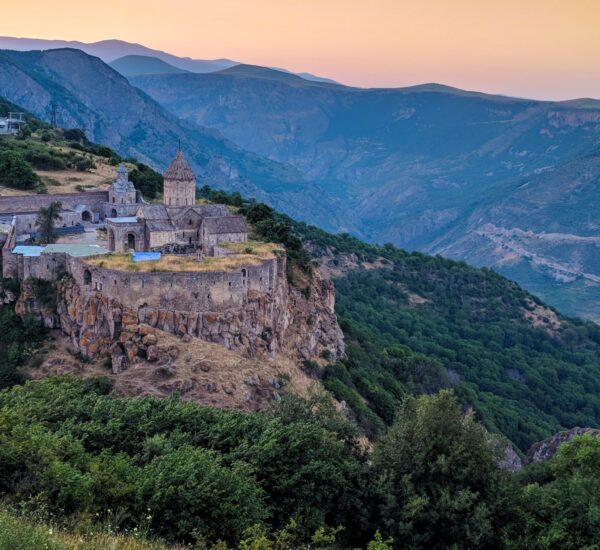A few weeks ago the president of Azerbaijan Ilham Aliyev publicly threatened to take Zangezur (Syunik) by force. “We will be implementing the Zangezur Corridor, whether Armenia wants it or not,” stated the emboldened president of Azerbaijan during a nationally televised interview.
Aliyev’s threats seem to become a reality as the Azerbaijani armed forces are crossing the internationally recognized border of Armenia and encroaching on the sovereign territory of the state.
A truth that’s told with bad intent
Beats all the lies you can invent
William Blake, Auguries of Innocence
What Happened On May 12?
Early in the morning on Wednesday, media outlets published unofficial news that Azerbaijani troops entered the territory of Armenia grossly violating international law. The Azerbaijani armed forces advanced in the direction of Ishkhanasar, a village in Sisian, Syunik Province.

Due to the lack of any official statements and clarification, contradicting news started to circulate on social media. Some said that an armed conflict happened between Armenian and Azerbaijani soldiers, while some claimed that soldiers were wounded as a result of the actions of the Azerbaijani troops.
In the meantime, others were sure that Azerbaijani troops advanced as there were no military posts in the territory. Seeing no obstacles, Azerbaijanis simply improved their positions.
It took the Ministry of Defense of Armenia a few hours to clarify the situation, reporting that the Azerbaijani military forces ‘tried to carry out certain work in one of the border areas in Syunik.”
As the official source states, thanks to the measures taken by the Armenian armed forces, the Azerbaijani military stopped that work. However, they did remain in the positions they have occupied earlier in the day.
Despite the statement of the Ministry of Defense, Pashinyan’s team members continued to claim that Azerbaijanis crossing the Armenian border and occupying the internationally recognized territory of Armenia was not a very serious issue as the ‘adjustments’ are still being made on the border.
The Chair of the Armenian parliament’s defense and security affairs committee Andranik Kocharyan told journalists that Azerbaijani armed forces used a 1974 map and occupied military posts that weren’t guarded by the Armenian soldiers. Experts, however, claim that the position Azerbaijanis have occupied on Ishkhanasar is the highest point in the area which gives the opponent lots of benefits in case of a military conflict.
Pashinyan Confirms the Azerbaijani Troops’ Advance
In the evening of May 12, the Security Council of Armenia held a special sitting chaired by prime minister Nikol Pashinyan to discuss the situation in Syunik.

During this session, the prime minister stated that the Azerbaijani armed forces have advanced 3.5 km in the direction of Sev Lich (Black Lake). Pashinyan classified this act of the Azerbaijani armed forces as an attempt to ‘surround and siege the lake.’
“It represents an encroachment on the sovereign territory of the Republic of Armenia. … The current situation is unacceptable to us. The Republic of Armenia cannot simply accept it. But given what we have now, our primary task is to settle the matter through negotiations, through diplomatic means,” stated the prime minister in his speech at the Security Council meeting.

Failing to Solve the Conflict Through Negotiations
Following the Security Council meeting held on May 12, the Armenian side initiated negotiations with the Azerbaijani armed forces that have occupied the area near Sev Lich. The meetings took place in the vicinity of Sev Lich and in the village of Nerkin Khndzoresk. The negotiations ended late at night, with the Azerbaijani troops still in the positions they have occupied the day before.
Moreover, the Azerbaijani military forces not only refused to leave the area near Sev Lich but also initiated advances in Vardenis, Gegharkunik Province.
As reported by the Ministry of Defense of Armenia on May 13, the Azerbaijani troops ‘under the pretext of ‘border adjustment’, carried out another provocation against the sovereign territory of Armenia’.
According to this statement, the Ministry of Defense demands that the Azerbaijani armed forces ‘return to their starting positions immediately.’ The armed forces of Azerbaijan, however, did not retreat, further complicating the situation.
It became clear on the following day that Azerbaijanis advanced 2 kilometers in Gegharkunik Province, thus encroaching on the sovereign territory of Armenia and crossing its eastern border too.
On May 14, the National Assembly of Armenia held a special sitting. During this sitting, prime minister Pashinyan stated that the negotiations were interrupted. “They will continue tomorrow at 3 PM,” said the head of the government.
In the meantime, the deputy mayor of Goris Menua Hovsepyan reported that the Azerbaijani armed forces have further advanced toward the direction of the city of Goris. The positions the Azerbaijani soldiers have occupied allows them to see the entire city of Goris from the high points of the village of Akner.
Taking into account the fact that the acting deputy prime minister Tigran Avinyan told reporters that ‘Armenia should be ready for possible grave developments’, the continuous advances of the Azerbaijani armed forces are something the acting government does expect.
Armenia Turns to CSTO

As the negotiations with Azerbaijani military forces produced no results, the caretaker prime minister Nikol Pashinyan announced in his speech on May 13 that Armenia would apply to CSTO (The Collective Security Treaty Organization).
According to this treaty, in case of a menace to the safety and territorial integrity of Armenia, the member states, including Russia, should interfere and launch mechanisms to eliminate the menace.
Pashinyan officially applied to CSTO to execute Article 2 of the treaty on May 14. The caretaker prime minister also notified all leaders of the countries of the collective security treaty of the situation in Syunik as well as held a phone call with the president of the Russian Federation Vladimir Putin.
As Pashinyan stated in his speech at the special sitting of the National Assembly, he also asked President Putin for military support. According to Pashinyan, the representative of the Russian 102nd military base in Armenia also took part in the negotiations.
“Our maps and the maps used by the Russian military base make our claims regarding the border between Armenia and Azerbaijan unequivocal,” said the caretaker PM.



